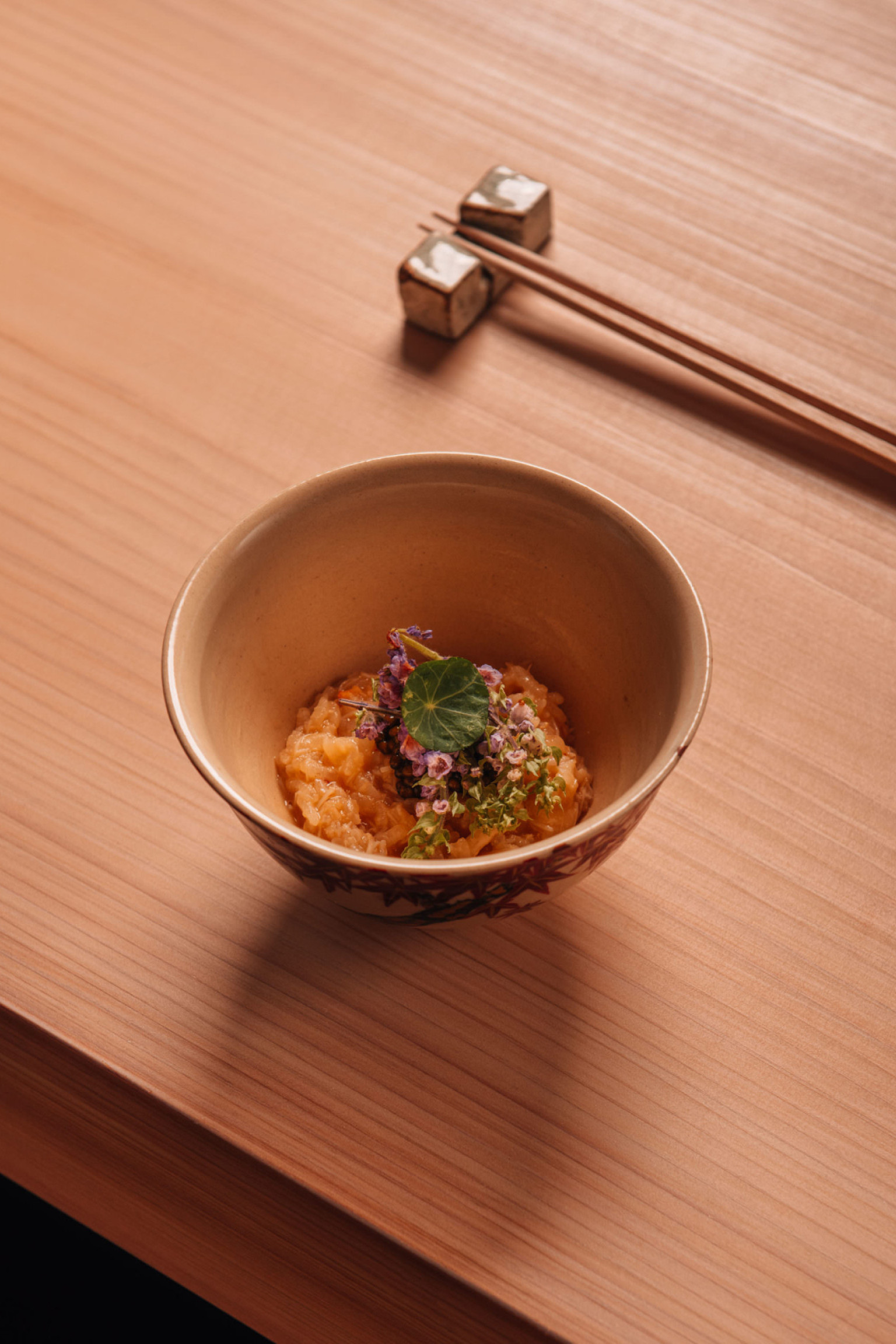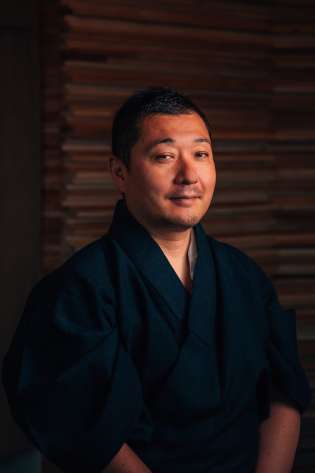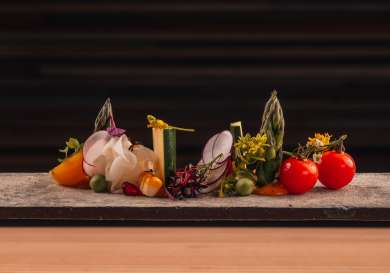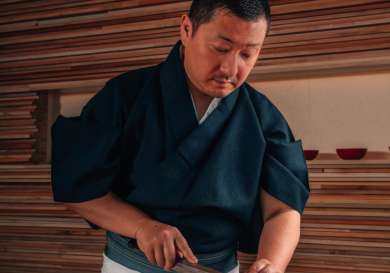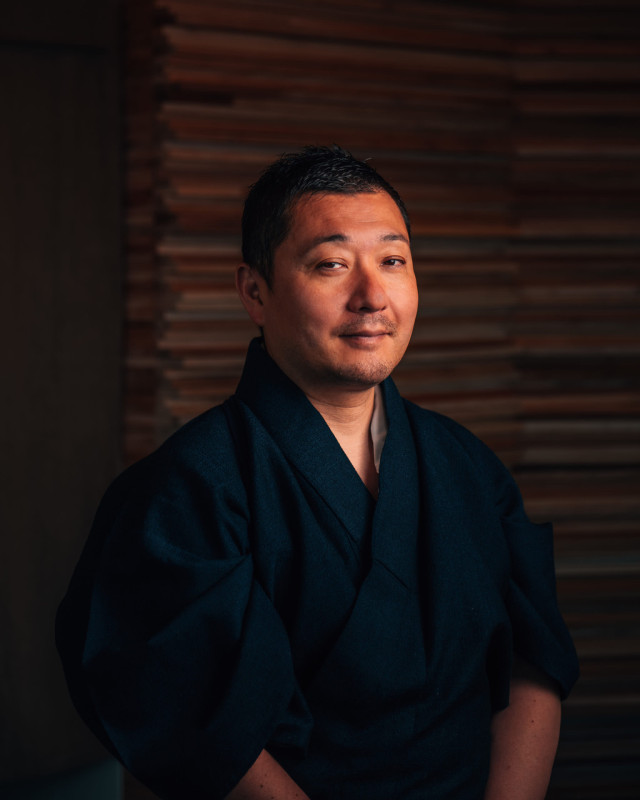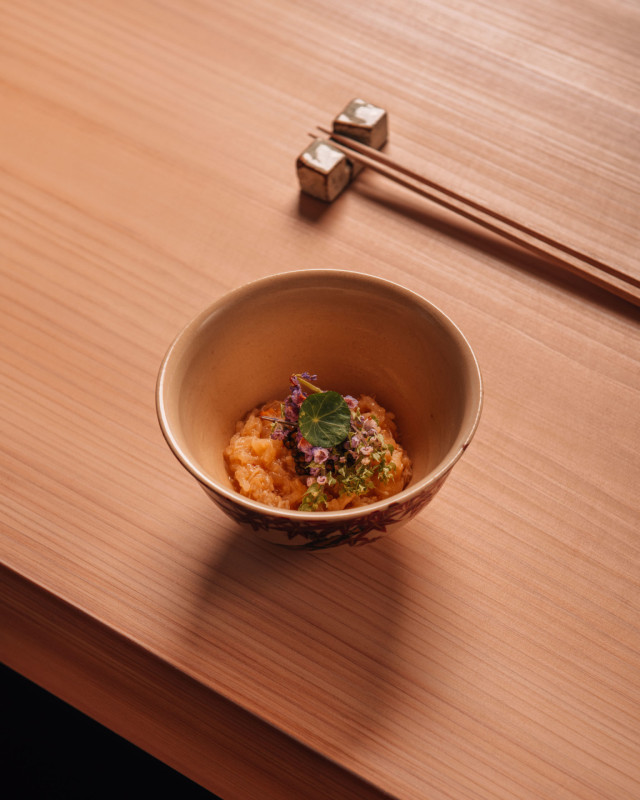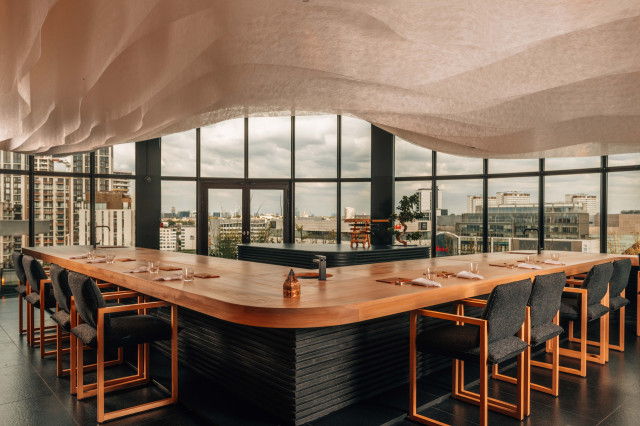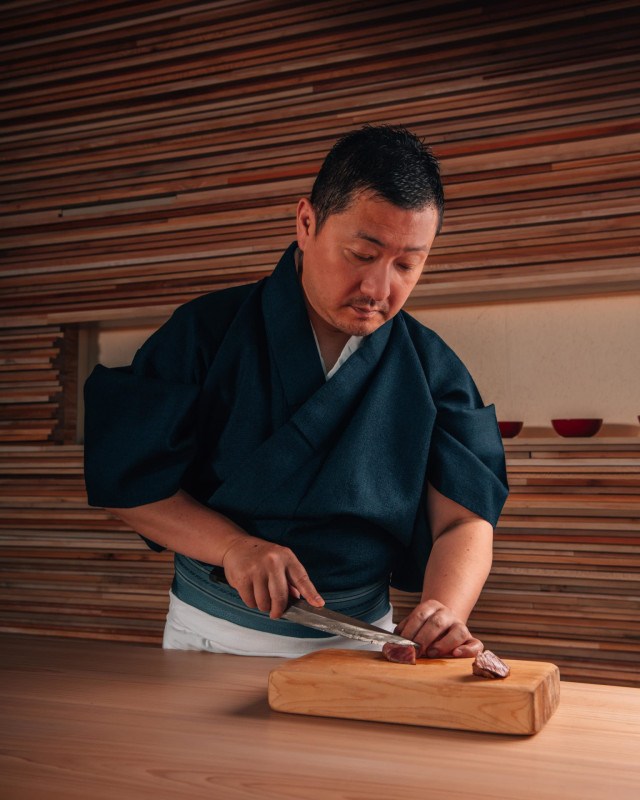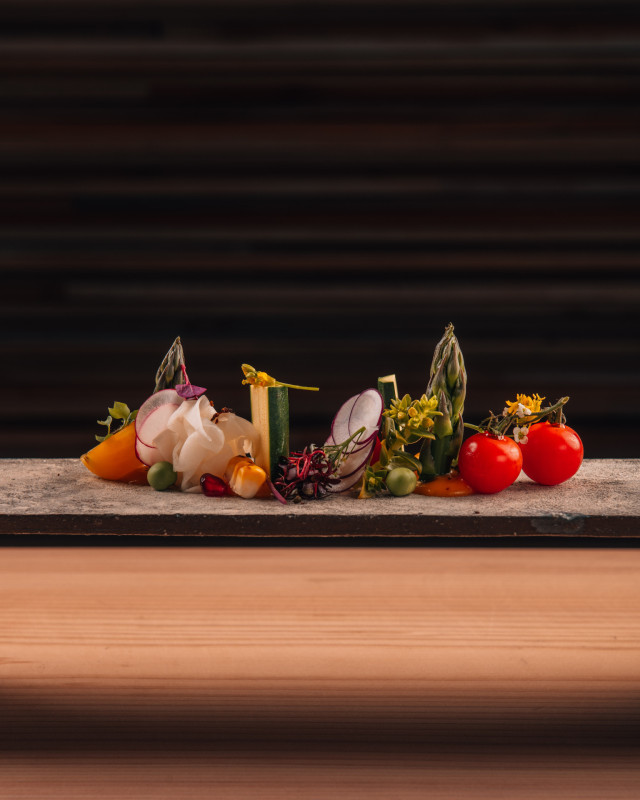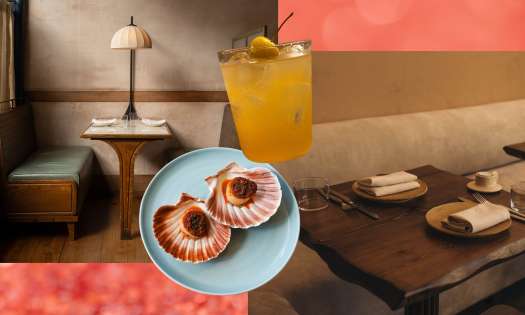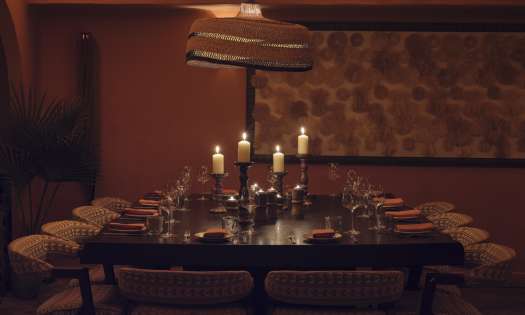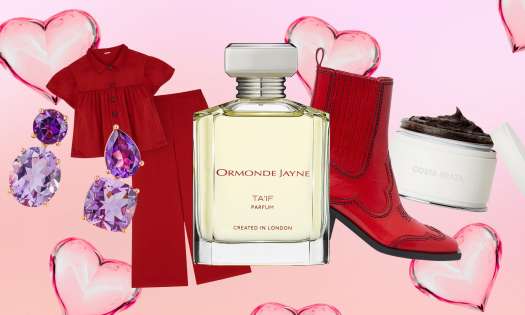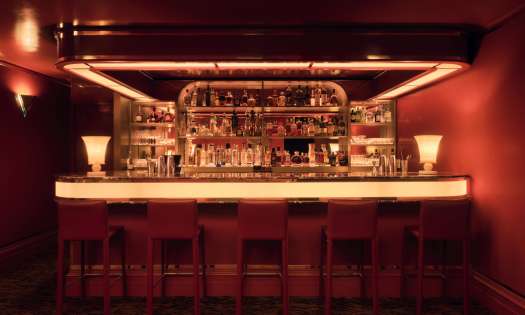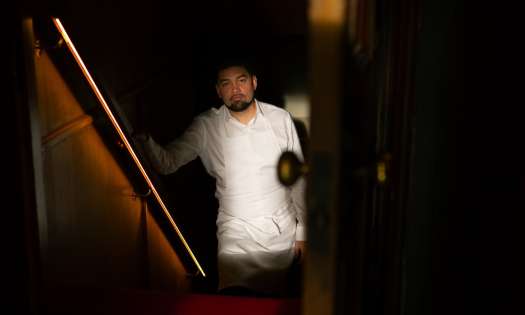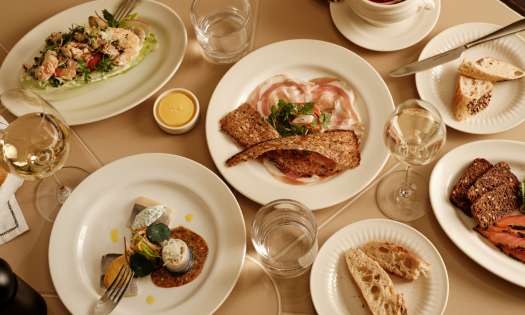Can you tell us a bit about your career and where did your love for cooking come from?
I grew up around my family's traditional restaurant, immersed in a world of sushi. As a child, I would accompany my grandfather to the fish market and observe the masterful cutting techniques and artful pressing of nigiri. But it was my mother who had the most significant influence on me during my formative years. She approached the art of sushi in an expansive way. Instead of playing baseball with my friends, she encouraged me to take up the martial art of Judo for the physical, mental and moral teaching and philosophy. I practised Ikebana, the art of flower arranging, to help develop ideas around expressive creativity through shape, line and form with an understanding of seasons and the concept of balance. I attended Chado tea classes, instilling an appreciation for the significance of ceremonial preparation and presentation of matcha. I learned the traditional practice of Nihon-buyo, a dance technique over four centuries old and that still features within Kabuki theatre. And finally, I was a student of Shodo, the form of artistic calligraphy of the Japanese language. This all-encompassing education instilled a deep personal and social awareness, cultural respect for my heritage and the importance of balance in all things, laying the groundwork for my future as a sushi chef.
It is not traditional to work for your family restaurant without experience at other restaurants, so first, I joined the team at one of Tokyo's top omakase restaurants. For four years, I immersed myself in the technique of edomae - a style of sushi invented in Tokyo 200 years ago. The more I understood, the more I realised that sushi would be my life's journey.
After a year back at my family's restaurant, I looked to expand my knowledge beyond edomae. I took on a position at the restaurant NARITA in Nagoya City, 340km west of Tokyo and home to one of Japan's most revered sushi masters Akitoshi Ohno, a protégé of Jiro Ono. I spent two years there honing my craft.
In 2006 I was approached by the London-based restaurant Zuma regarding the position of Head Sushi Chef. I was curious about the idea of moving to the UK and, after a few weeks in Spain, I arrived in London to meet Chef Rainer Becker, the creator and founder of Zuma, Roka and Shochu Lounge. I discovered that Rainer had a deep understanding and profound respect for Japanese culture. We shared a vision of a more modern approach to traditional Japanese food with an uncompromising desire for quality. In 2007 I took up residence in London. At Zuma, I learnt how to grow my style and tailor it to specific nationalities and tastes. I opened Endo at the Rotunda in April 2019.
You’ve always loved sports, but you chose to honour tradition to your family and started becoming a chef. Would you have chosen another direction in your life if it hadn't been for your roots?
This is a tricky question as it’s hard to imagine not being a chef! I think I’d probably have been a teacher or a professional sportsman.
What is/are your biggest triumphs as a chef, and what's left to achieve?
The most significant moment was opening my first restaurant, Endo at the Rotunda in London. It had been a dream of mine, and I finally knew after 24 years I was ready. Of course, winning a Michelin star was very special too. There’s always more to achieve; we just keep striving to do better each day.
Tell us about Endo at The Rotunda. What makes this place unique and special from the rest of the restaurants in London?
We always strive to do our best in every aspect of what we do, which you certainly won’t find in every restaurant. I believe we also have a unique relationship with our suppliers. My cuisine is based around produce at its best, chosen by me. For example, we import our rice and water from the same area in Japan, ensuring the cooked rice has the perfect PH. We get our Mazuma Wasabi from near Mount Fuji, and it is the best you can get. Our soy sauce is a blend of two; both are organic and aged for five years. We have one from Fukuoka, which is sweeter, while the other from Ehime Prefecture contains more umami; this provides the perfect balance for me. The recipe for our vinegar was my grandfather’s, so that is an ingredient that is very close to my heart.
Also, our relationship with the guest is extremely special. Our service is inspired by the Japanese spirit of omotenashi - the art of hospitality rooted in empathy towards one's guest. More than a style of service, it is a state of mind. You must showcase the genuineness of who you are, the best you, without hiding anything. It’s important to note how we speak and present ourselves to guests. Every detail should be considered, from music to our scent-free sanitiser. Do everything you can to create an immersive, multi-sensory dining experience. We cook from the heart, and the guest always comes first in everything we do. The Japanese concept of ‘ichi-go ichi- e’ is treasuring the unrepeatable nature of a moment. We want our guests to experience a once in a lifetime experience, even if they return. To summarise, it’s a pure, honest and sincere version of hospitality. That’s something I feel we do uniquely at The Rotunda.
